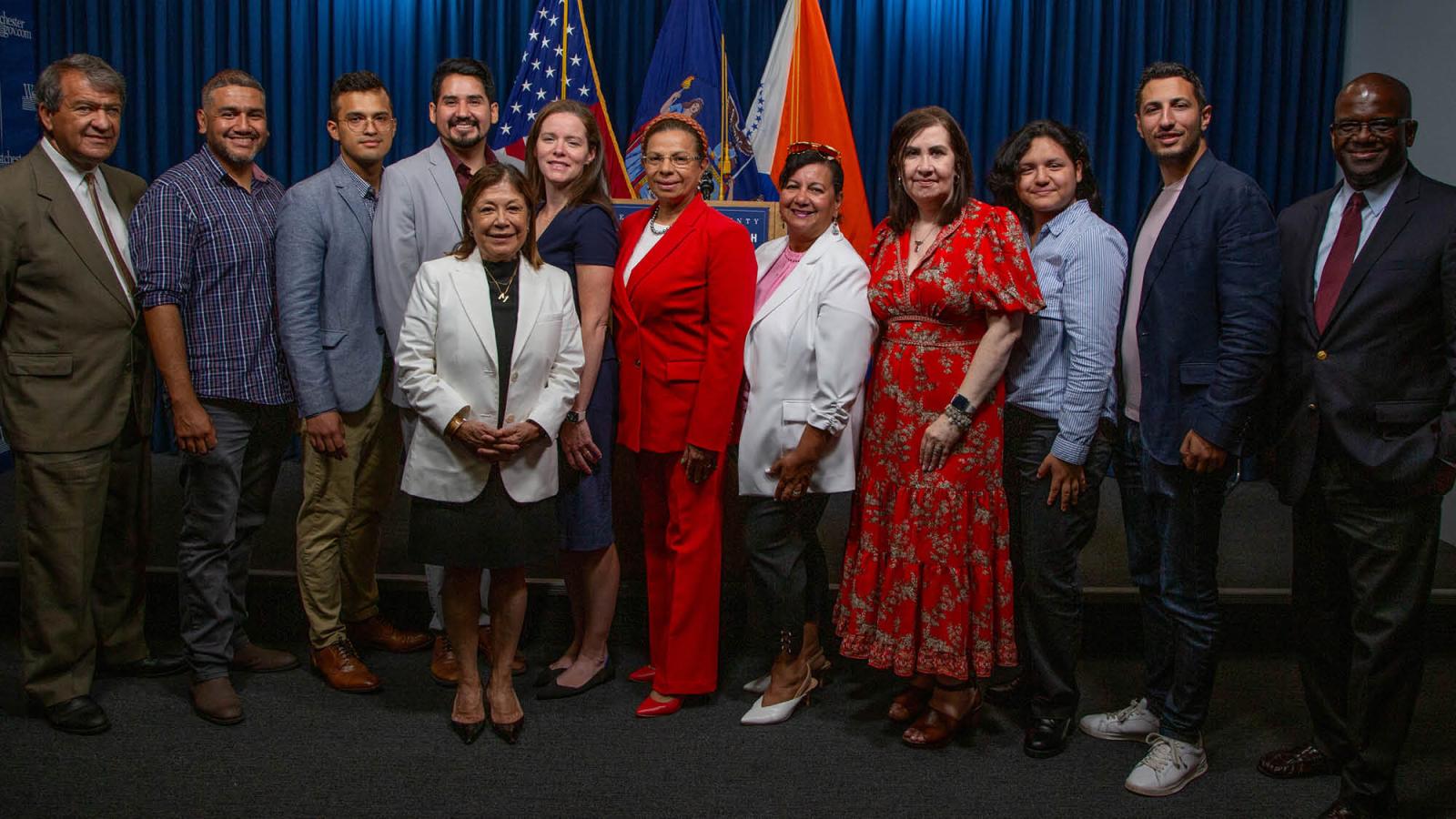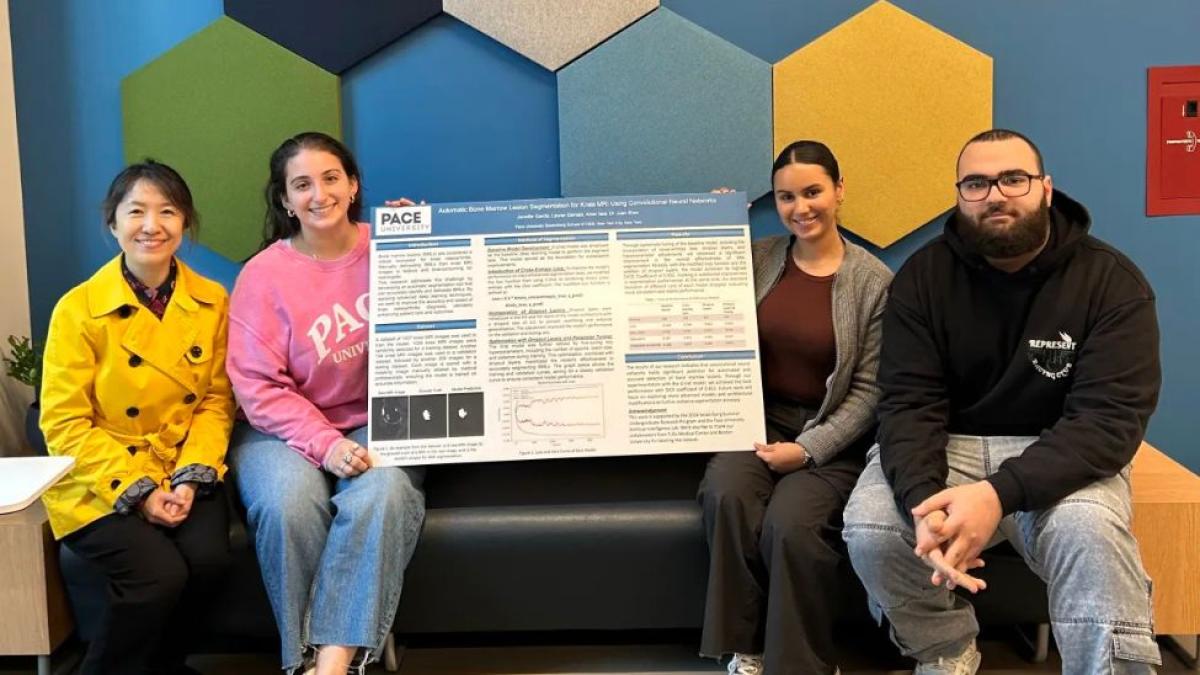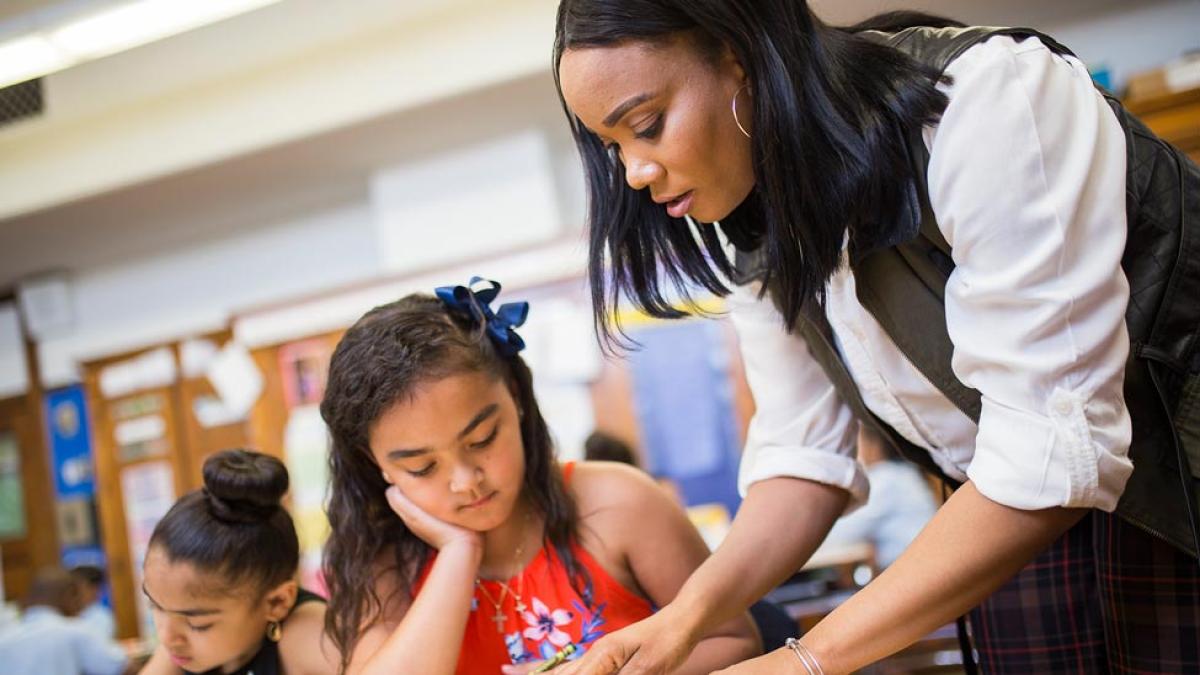Associate Professor Mirjana Pantic, PhD, and a team of Pace students and alumnae presented research in Australia on how Gen Z navigates the workplace. Their findings revealed a strong preference for hybrid work, open communication, and real-time feedback—insights that are already making an impact beyond the classroom.
Helene and Grant Wilson Center for Social Entrepreneurship Leads Community-Engaged Research Initiatives in Westchester County, the NY Metro Area, and Beyond

The Helene and Grant Wilson Center for Social Entrepreneurship at Pace University leads and supports Community-Engaged Research across its many partnerships with local communities and organizations. Community-engaged research is a collaborative process that incorporates the input of individuals and organizations affected by research outcomes as equal partners in the research process. This collaborative research approach encompasses co-designing research questions, dialoguing on methods, influencing policy, and ultimately creating programs and interventions to address issues identified by the community, reflected in the research outcomes. The community remains a true partner in these decisions, ensuring that the appropriate actions are taken and solutions are relevant and beneficial to their lives.
Most recently, Westchester County Executive George Latimer announced a crucial new initiative led by the Westchester Hispanic Advisory Board and Pace University faculty researchers, Wilson Center Executive Director and Chair of the Public Administration department Professor Rebecca Tekula PhD & Public Administration Professor, Gina Scutelnicu Todoran PhD. This initiative, the first comprehensive needs assessment of the Latino community in Westchester County in over two decades, will provide valuable insights on key areas such as education, healthcare, employment, housing, and social services. Our team of Pace faculty researchers brings academic rigor and expertise to the project, ensuring the collection of high-quality, actionable data, and will support the County in interpreting the findings toward policy implementation. Professor Tekula emphasizes the importance of this initiative, stating, "Collaborating on this survey underscores our commitment to community-engaged research in Westchester County. We are proud to partner on this effort to capture the voices and experiences of Latino residents, toward the goal of informing and improving the delivery of services and supports." The data from this study will provide essential information to enhance county programs and services, ensuring they align with the current needs of the Latino community. The Hispanic Advisory Board, led by Chair Dr. Carmen Martinez Lopez, encourages all Latino residents to participate, as their collective input will be instrumental in shaping future policies and improving the quality of life in Westchester County.
Earlier this year, recent Wilson Center Faculty Fellow and Public Administration Professor Gina Scutelnicu Todoran, PhD and Wilson Center Executive Director and Chair of the Public Administration department Professor Rebecca Tekula, PhD secured a nearly $30,000 grant from the Council of Family and Child Caring Agencies (COFCCA) to evaluate the financial health of approximately 75 New York State agencies that provide child welfare services, including foster care, preventive services, and juvenile justice services. Working alongside two Pace University graduate students, Scutelnicu-Todoran and Tekula conducted a comprehensive financial analysis encompassing cumulative organizational revenues, expenditures, endowments, and other investments. The project, set for completion this fall, will culminate in a detailed report and presentations to executive and legislative leaders at both the New York State and New York City levels. Individual agency reports will also be provided for all COFCCA members. The primary aim of this research is to inform stakeholders of the financial health and needs of these agencies, and support advocacy toward informed and strategic budgetary decisions that will enhance child welfare and juvenile justice services across the state.
In another significant project, the Wilson Center partnered with Nonprofit Westchester and Dyson College’s Department of Public Administration to conduct a comprehensive study which led to the publication of Westchester County’s Nonprofit Compensation and Benefits Report. This study, funded by the Westchester Community Foundation, aimed to provide Nonprofit Westchester members, the broader sector, and government partners with data and insights to ensure equitable compensation and benefits for sector employees. Given the size and importance of the nonprofit sector in the county, the research shed light on the state of compensation and benefits for individuals delivering critical programs and services. The resulting report has empowered nonprofits with resources to advocate for investments in human capital, supporting the well-being and sustainability of their employees and organizations.
Previously, in 2022 a partnership with the Wilson Center, Pace University’s Department of Public Administration in Dyson College, and the Community Fund of Bronxville, Eastchester, and Tuckahoe, conducted a comprehensive community needs assessment to identify available services and resources for residents and uncover potential gaps in human services, healthcare, housing, public safety, daycare, and recreation. This year-long project was led by Pace faculty with the support of students, staff, Community Fund leadership, and local agencies. The outcomes of the assessment were shared disseminated among stakeholders and Pace faculty led several community conversations to help the Community Fund of BET, local agencies and nonprofits leverage the findings, prioritize programs, and develop impactful initiatives to better serve the residents of Bronxville, Eastchester, and Tuckahoe.
The Helene and Grant Wilson Center for Social Entrepreneurship commitment to community-engaged research highlights the importance of collaboration between academia and community partners. By involving the community in every step of the research process, the Wilson Center faculty, staff and student partners ensures that outcomes are not only academically rigorous but also practically relevant and beneficial to those who need them most. This approach not only advances academic research but also fosters meaningful partnerships that drive positive social change.


